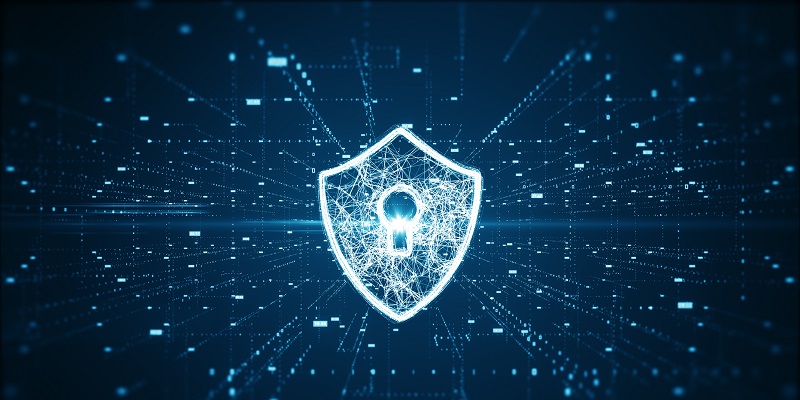In the digital age, cybersecurity plays a vital role in ensuring the integrity and protection of data during transactions. Blockchain technology has emerged as a game-changer in this realm, providing a secure and transparent platform for conducting digital transactions. This article delves into the invincibility and untouchability of data in the blockchain, the decentralized nature of this technology, its resistance to attacks, the formation of blocks in a chain, consensus algorithms, attributes of blockchain technology, its relevance beyond cryptocurrencies, and the future improvements necessary to strengthen blockchain security.
The Invincibility of Data in Blockchain
Once data enters the blockchain, it becomes invincible and untouchable, safeguarded against any malicious forces seeking to tamper with it. This invincibility arises from the nature of the blockchain being a distributed ledger. The data is distributed across a network of nodes, and each participant holds a copy of the blockchain. This redundancy ensures that even if one node is compromised, the data remains intact in other nodes. Thus, the blockchain provides an added layer of security, reducing the risk of unauthorized access or manipulation.
Decentralization in blockchain
Blockchain operates on a peer-to-peer network, meaning no central authority controls everything. Instead, control is distributed among multiple participants who verify and validate transactions. This decentralized structure eliminates reliance on a single entity, making it more secure and resistant to attacks. By distributing authority, blockchain mitigates the risk of a single point of failure, making it challenging for hackers to breach the system. Consequently, the decentralized nature of blockchain enhances cybersecurity by fostering a more resilient and robust network.
Protection against attacks
The decentralized structure of blockchain acts as a barrier against manipulation and control by any single entity or malicious force. Since no central authority has complete control, it becomes exceedingly difficult for any individual or group to alter transactions or the overall functioning of the blockchain. Modifying the hash of a single block in a cryptocurrency blockchain, for instance, is an arduous task, as it would require immense computational power and the consent of a majority of network participants.
The Blockchain
Each transaction in a blockchain is linked to the previous one using cryptographic hashes, forming a chain of blocks. This chain formation ensures the integrity and security of the transactions. Any alteration to a previous transaction would result in a change of its hash value, thus creating a discrepancy in subsequent blocks. Detecting such inconsistencies becomes relatively easy, allowing participants to identify any tampering attempts. The chain of blocks serves as a robust mechanism to maintain the security and trustworthiness of the blockchain.
Consensus algorithms
To ensure the validity and order of transactions, blockchain employs consensus algorithms. These algorithms enable all participants in the network to agree on the state of the blockchain through a process of verification and validation. By reaching a consensus, the network establishes the correctness of transactions and the order in which they are recorded in the blockchain. This consensus mechanism eliminates fraudulent or unauthorized transactions, maintains the integrity of the blockchain, and enhances security.
Attributes of Blockchain Technology
The attributes of decentralization, immutability, and consensus make blockchain technology a secure and transparent platform for conducting digital transactions. Decentralization removes reliance on a central authority and promotes a network where no single entity controls the system. Immutability ensures the permanence of transactions once recorded in the blockchain, adding an extra layer of security against tampering. Consensus guarantees agreement among participants, making it difficult for malicious actors to manipulate or disrupt the network. These attributes collectively create a robust cybersecurity framework within blockchain technology.
Beyond cryptocurrencies
While blockchain gained prominence through cryptocurrencies, its potential extends far beyond digital currencies alone. The unchangeable nature of blockchain and the immense security it provides make it more than just a fancy technology for cryptocurrencies. Industries such as supply chain management, healthcare, logistics, and voting systems can benefit from blockchain technology’s secure and transparent framework. By leveraging blockchain, these industries can enhance cybersecurity, protect sensitive data, and build trust among stakeholders.
Data integrity and trust
One of the key advantages of blockchain technology is its ability to ensure data integrity, enhance trust, and minimize the risk of unauthorized tampering. The immutability of transactions on the blockchain guarantees that once recorded, they cannot be altered or deleted. This inherent trustworthiness fosters confidence in digital transactions, making blockchain a reliable platform for secure exchanges. By using blockchain, organizations can maintain data integrity and protect against cyber threats, ultimately strengthening trust in the digital landscape.
Future improvements in blockchain security
While blockchain technology has demonstrated its resilience and security, challenges persist. Issues such as scalability, privacy, and interoperability need to be addressed to further strengthen blockchain security. Moreover, as cybersecurity threats evolve and adapt, blockchain must continue to innovate and find novel solutions to counter these challenges. Through collaboration among industry experts, researchers, and policymakers, advancements in blockchain security can be achieved, ensuring a more robust and impenetrable cybersecurity framework.
In an era where cybersecurity is of utmost importance, blockchain technology offers a revolutionary solution for secure digital transactions. With its invincible nature, decentralized structure, resistance to attacks, chain of blocks, consensus algorithms, and inherent attributes, blockchain provides a secure and transparent platform for conducting transactions. By addressing challenges, finding innovative solutions, and fostering collaboration, we can make blockchain even better for cybersecurity. Harnessing the potential of blockchain technology will pave the way for a safer and more trusted digital landscape.

